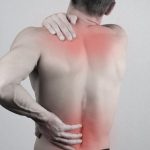When it comes to feeding your baby, making informed choices about what foods are safe and nutritious is crucial. What snacks should you avoid to ensure your baby’s health and safety? In this article, we will explore the best snacks left out of your baby’s diet. Understanding which snacks to avoid can help you provide your little one with the healthiest and safest options.
- Sugary Snacks: A Sweet Temptation to Avoid
- Salty Snacks: Not for Tiny Taste Buds
- Highly Processed Foods: Keep It Natural
- Choking Hazards: Safety First
- Foods with Artificial Additives: Go Natural
- Caffeinated Drinks and Foods: Keep Babies Caffeine-Free
- Sticky and Gummy Foods: Not Baby-Friendly
- Nuts and Seeds: Potential Allergens
Sugary Snacks: A Sweet Temptation to Avoid
Healthy baby snacks should be low in sugar. Sugary snacks, such as candies, cookies, and certain cereals, can cause a range of problems for your baby. These foods can lead to tooth decay, unhealthy weight gain, and poor eating habits. Babies don’t need added sugars; they can get all the energy they need from natural sources like fruits and vegetables. Instead of sugary snacks, opt for naturally sweet options like fresh fruit. These alternatives provide essential nutrients without the harmful effects of added sugar.
Salty Snacks: Not for Tiny Taste Buds
Salt is another ingredient that should be limited in your baby’s diet. Salty snacks like chips, pretzels, and salted nuts can be harmful. High sodium in food can lead to high blood pressure and other health issues later in life. Babies’ kidneys are not completely developed and cannot handle much salt. It’s best to avoid adding salt to their food and steer clear of salty snacks. Look for low-sodium or no-sodium options when choosing snacks for your baby.
Highly Processed Foods: Keep It Natural
Highly processed foods are often packed with additives, preservatives, and artificial flavours. These ingredients can be harmful to your baby’s developing body. Processed snacks like pre-packaged meals, certain snack bars, and instant noodles usually lack the essential nutrients your baby needs. They also often contain unhealthy fats and sugars. Aim to offer whole, natural foods instead. Fresh fruits, veggies, and whole grains are much better for healthy baby food.
Choking Hazards: Safety First
Safety is a top priority when it comes to feeding your baby. Certain foods pose a choking hazard and should be avoided. These include whole nuts, popcorn, hard candies, and large pieces of raw vegetables or fruits. Even foods that are safe for adults can be dangerous for babies. Always cut food into small, manageable pieces and avoid giving your baby hard, round, or sticky foods. Being mindful of potential choking hazards can prevent serious accidents.
Foods with Artificial Additives: Go Natural
Many snacks contain artificial colours, flavours, and preservatives. These additives can cause allergic reactions and many health issues in babies. Snacks like brightly coloured candies, flavoured chips, and processed meats often contain these harmful ingredients. It’s best to avoid foods with long ingredient lists and unfamiliar chemicals. Choosing natural, whole foods can help avoid artificial additives and ensure your baby gets the best nutrition.
Caffeinated Drinks and Foods: Keep Babies Caffeine-Free
Caffeine is not suitable for babies. It can be found in certain drinks and snacks, like chocolate and flavoured beverages. Caffeine can cause irritability, restlessness, and disrupted sleep patterns in babies. It’s crucial to avoid giving your baby any foods or drinks that contain caffeine. Stick to water, milk, and natural fruit juices for hydration. Ensuring your baby’s diet is caffeine-free supports healthy sleep and development.
Sticky and Gummy Foods: Not Baby-Friendly
Sticky and gummy foods can be particularly problematic for babies. These include gummy candies, sticky granola bars, and certain dried fruits. These foods can get stuck in your baby’s teeth and are hard to clean out, increasing the risk of tooth decay. They can also pose a choking hazard. It’s best to avoid sticky foods and choose softer, easily chewable snacks. This ensures your baby’s teeth stay healthy and reduces the risk of choking.
Nuts and Seeds: Potential Allergens
Nuts and seeds, while nutritious, can be potential allergens and choking hazards for babies. Whole nuts and seeds can easily get lodged in a baby’s throat. Additionally, some babies may be highly sensitive to nuts, which can cause severe reactions. It’s important to introduce these foods carefully and in a safe form for babies, such as finely ground or smooth butter. Always consult your paediatrician before introducing potential allergens into your baby’s diet.
Ensuring your baby’s diet includes healthy baby snacks while avoiding harmful ones is crucial for their growth and safety. Prioritising natural, whole foods and being mindful of choking hazards can help keep your baby safe and healthy. Making informed choices about snacks sets a strong foundation for healthy eating habits. Focus on offering various nutritious options to support your baby’s overall well-being and development. By doing so, you help establish a lifetime of healthy eating habits for your little munchkin.














